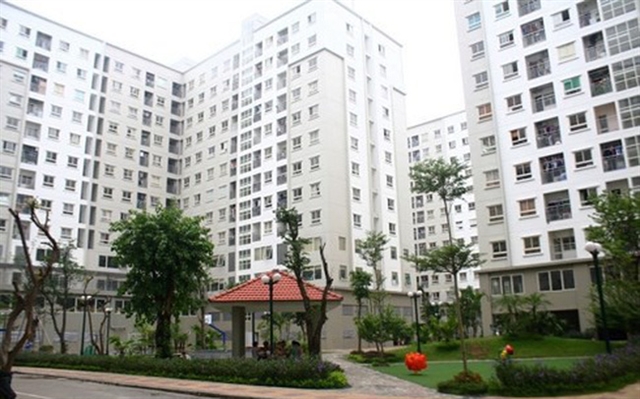 Society
Society

There were not a single social housing project in HCM City this year, and with support funds for them being limited, there is a fear the situation could continue, experts said.

|
| The HCM City Department of Construction has forecast that the city will need 45 million square metres of floor space between 2021 and 2025 to meet the housing demand. VNS Photo Văn Châu |
HCM CITY — There was not a single social housing project in HCM City this year, and with support funds for them being limited, there is a fear the situation could continue, experts said.
The city has a population of around 13 million including about 3 million migrants, according to the HCM City Real Estate Association (HoREA).
Housing development is of paramount importance as the city would add one million people to its population every five years in 2021-35, Võ Văn Hoan, vice chairman of its People’s Committee, said.
Lê Hoàng Châu, chairman of HoREA, said: “The city’s biggest and most difficult problem is to address the housing needs of a large number of low- and middle-income people, including Government workers, students, workers, and migrants, to ensure social welfare and sustainable development.”
The city has nearly 476,000 families, or 25 per cent of the total number, that do not own homes and live with relatives. Of them, more than 20,000 live along and near canals and 35,000 in old apartment buildings that need to be renovated.
Next year the city is expected to have 20,000 units of social housing, a very small number compared with the demand.
The reason is that social housing brings little profit to developers, meaning they are reluctant to undertake them unless there are subsidies and support policies from the government.
The city People’s Committee recently announced VNĐ10 billion (US$430,000) has been earmarked for loans to buy social housing this year in 12 districts.
The amount is very modest, experts said.
People are finding it very difficult to find apartments for less than VNĐ2 billion ($ 85,500) in the city.
Prices are up 5-10 per cent on average from just six months ago as a quickly rising population and shortage of new supply puts increasing pressure on them.
Demand far outstrips supply, Châu said.
Administrative procedures take too much time while transportation to the city’s central areas is not good, meaning people do not want to stay too far from them, he said.
Hoan said to address this problem the city administration plans to call on the private sector to invest in low-income housing.
It has also instructed the Department of Construction to review and amend policies to create favourable conditions for enterprises to invest in such housing and for people to be able to buy them.
Châu said HoREA has called for upgrading traffic infrastructure to link the five suburban districts of Củ Chi, Cần Giờ, Bình Chánh, Hóc Môn, and Nhà Bè with the city’s central areas so that they become more attractive as residential areas. — VNS




